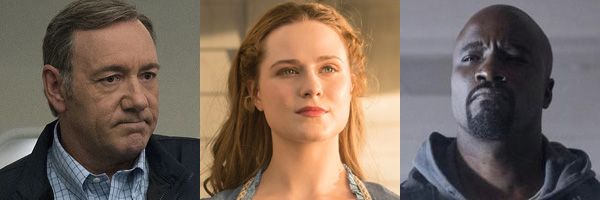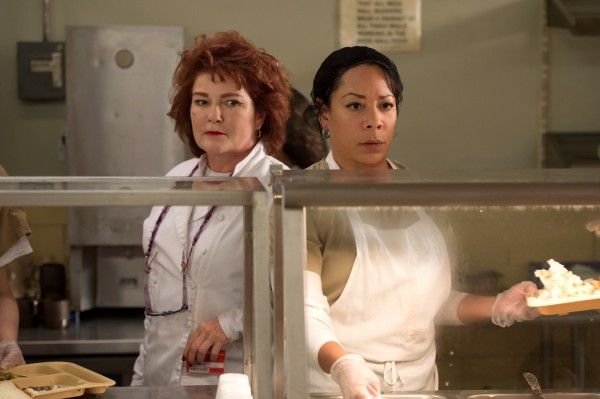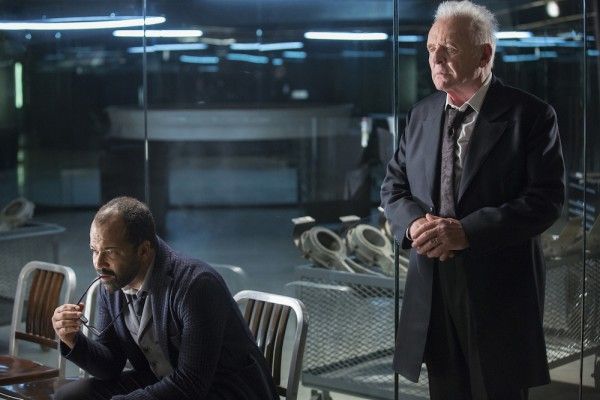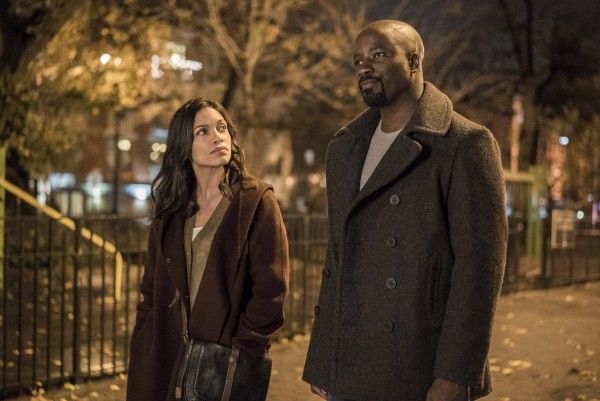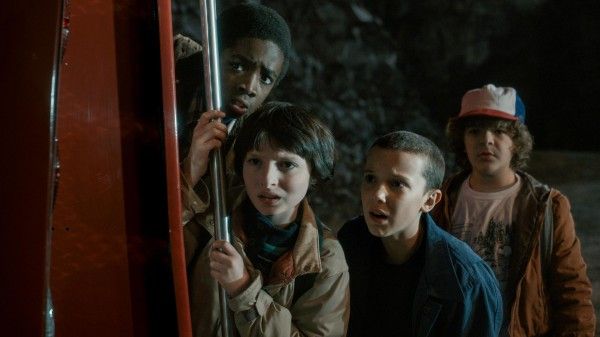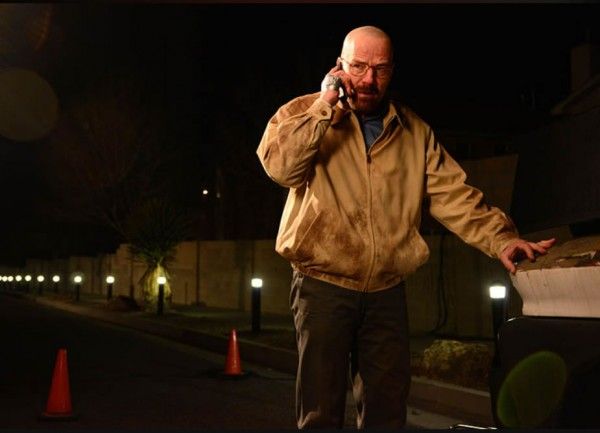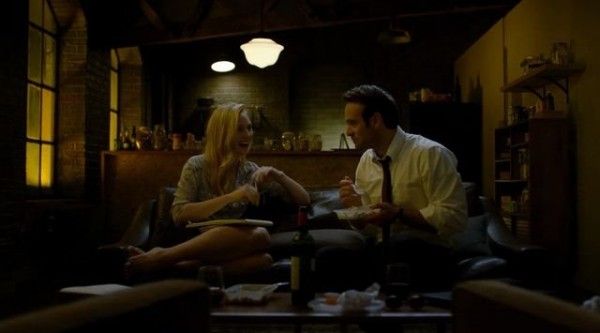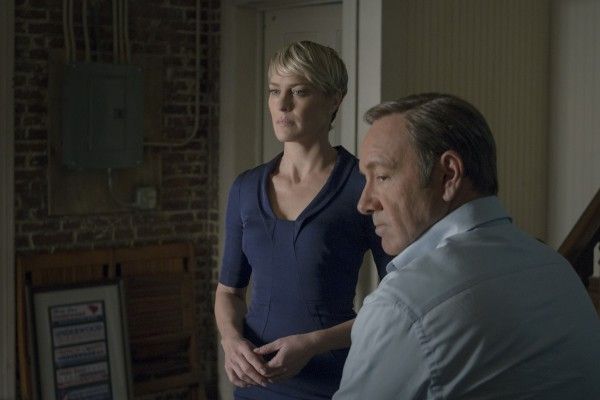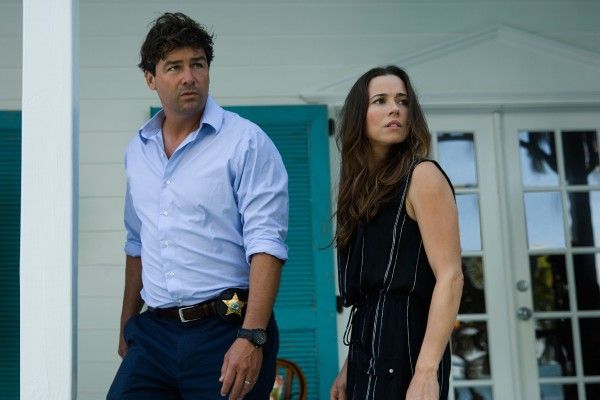The rise of the term “binge-watching” was synonymous with the rise of Netflix as a major source of television consumption for people across the globe. As the streaming service grew in popularity, it not only became a place to watch movies, but more predominantly became the destination where you could catch up on the latest buzzworthy TV show before the next season started. In fact, the rise in popularity of Breaking Bad was in direct correlation to past seasons being put on Netflix to watch in full. People who were seeing that guy from Malcolm in the Middle win Emmy after Emmy wanted to see what all the fuss was about, and now they could do so from the comfort of their own home before partaking in the new season on AMC. But now, with Netflix churning out show after show and releasing all episodes online at once, it feels like binge-watching is becoming less of a habit, with once “must-watch” shows sitting in the Netflix queue for weeks on end. Why? Because binge-watching has for many proved to be a less satisfying viewing experience than watching a TV show week to week.
As Netflix saw the popularity in binge-watching rise, it was beginning to dip its toe into the world of original programming, with the incredibly expensive David Fincher-helmed series House of Cards debuting in 2013. In direct contrast to traditional television, Netflix seized upon the binge-watching fad by releasing an entire season’s worth of episodes at once, allowing viewers to consume these homegrown shows at their own pace. It was a new way to watch television, and while many, many users embraced it, it also altered the viewing experience in a fundamental way.
As Netflix began to roll out Orange Is the New Black and Unbreakable Kimmy Schmidt and Bloodline, shows would catch buzz leading up to their release, but given that viewers were never all on the same page, actually discussing these series became more like navigating a minefield. The first episode of House of Cards’s second season featured a major character death, but instead of the big episode airing on television and spurring a flurry of post-mortems, interviews, and editorials the day after, viewers and TV critics alike had to tread carefully for fear of spoiling said death for those that hadn’t gotten a chance to watch the season yet. There are now so many Netflix originals vying for our attention, and the fact that we know they’ll be there waiting for us without fear of expiring lessens the urgency to watch. Moreover, given that discussions about these shows rarely dive into spoiler territory as many people are at different stages of viewing, there’s not the same need to watch ASAP for fear of having the experience ruined. If you miss a big episode of Game of Thrones, you’ll regret it the next morning. If you’re not caught up on Luke Cage, few people are going to be outright discussing the plot twists and turns of all 13 episodes out in the open.
Binge-watching wasn’t just relegated to Netflix, however. HBO launched its own streaming service HBO Go that allowed people to catch up on their entire back catalogue, as well as the buzziest show on television, Game of Thrones, and the rise of its ratings each year suggests that folks were catching up and tuning in live for each new season. Elsewhere, network series like Arrow and The Flash were made available on Netflix, allowing people to get acquainted with the CW Superhero Universe before the next TV season arrived. Netflix and CW have even recently inked a mutually beneficial deal in which the most recent seasons of CW series arrive on Netflix much sooner than before, in order to ensure viewers are caught up before the new season begins.
And yet, while binge-watching a new series is convenient, it can be an isolating experience. As bingeing TV shows gained popularity, it became obvious that actually conversing about these shows with friends and the online community was very different from discussing shows that air traditionally on television. You couldn’t bring up a big twist in some Netflix show without first affirming that the people you’re talking to have actually watched up through that point in the series. As a result, while anticipation for Netflix shows is certainly high, actually talking about them post-release is a bit more hushed.
Conversely, HBO just debuted its highly anticipated sci-fi series Westworld not only to much anticipation and acclaim, but much conversation. Given that we’re all watching Westworld at the same pace, week-to-week, we’re able to take part in fascinating discussions about the show’s themes, plot, and harebrained theories without fear of spoiling it for someone else. You either watch Westworld or you don’t, there’s no middle ground of “Well I’ve only seen the first three episodes” or “I haven’t seen the last two episodes yet!” Not to mention FX's incredible The People v. O.J. Simpson, which spurred important and lively conversation week after week, resulting in a more fulfilling viewing experience.
The television medium has always allowed viewers to not only experience entertainment, but also discuss it. The “watercooler moment” was so-named because in the days before DVR, a very special episode of ER would air, and the next day at school or work people were fawning over the latest twist or dramatic episode.
Indeed, another casualty of binge-watching is the death of the episode. Every original Netflix series is crafted with the intention of releasing all episodes at once. This has not only resulted in a sluggish quality with pretty much every Netflix original released thus far, but since people are watching so many episodes in one sitting, it’s difficult to suss out one episode from another. There’s basically an entire editorial to be written about the decline of the episode altogether, but that’s a discussion well covered by my esteemed colleague Allison Keene. But devaluing individual episodes is yet another unfortunate side effect of binge-watching, and one that diminishes the overall satisfaction of a show. Remember how everyone was buzzing about the Lost episode “The Constant” or basically any of that show’s season finales? Or Breaking Bad’s “Ozymandias”? Now try pinpointing a fulfilling, contained episode of a Netflix series that was just as satisfying for viewers to rally around.
There are, of course, exceptions. The Netflix original Stranger Things burst onto the scene out of nowhere this year, with seemingly little marketing ahead of time, but its limited number of episodes (8 as opposed to the traditional 13) and film-like quality makes it stand out from the rest of the pack—fewer episodes means less sluggishness (although that’s still there) and a more palatable binge-watch, and approaching the season as one long feature film or novel made the series more satisfying overall in terms of binge-able series, and also more manageable; watching 8 episodes in a weekend is far easier than 13.
But aside from Stranger Things, I can’t think of the last show I actively binge-watched and felt satisfied by the end. I really like House of Cards, yet never finished this most recent season. There are plenty of reasons to praise Orange Is the New Black, but the past two seasons are still sitting in my “to-watch” queue. I immensely enjoyed the first season of Bloodline, but knowing Season 2 is and will always be there has diminished any urgency I have to jump right in. And while I think Jessica Jones is one of the best things Marvel has done in any medium, it’s impossible to deny that show would’ve been even better and tighter had it been trimmed down to 10 episodes.
Am I alone? Am I the only one tired of binge-watching? It’s possible, but the lack of active conversation surrounding each successive Netflix original signals to me that fewer people are consuming these series in one fell swoop. And yet, Netflix is ramping up its original programming like never before. With its big move into feature film territory and thinning of its licensed films and TV shows, the streaming service is aiming to bolster its library with at least 50% originals. And given that those originals, like the ones airing now, are operating under the same “make these to be binged” conceit, it doesn’t bode well for those growing tired of it in the first place, like myself.
Look, there are going to be days when I want to sit on the couch and watch a few episodes of a TV show in a row. But I also enjoy watching shows week-to-week, being in on the conversation, anticipating the next installment. Westworld is the perfect example. It’s my new obsession, and it’s such an exciting series because A). Each episode is crafted as an episode to be watched and savored and B). I love diving into the discussions and theories online in the 6 days between new episodes. With binge shows, there’s little of that. A series might linger for a couple weeks after it’s released on Netflix, but beyond that, since folks downed the whole season in one gulp, its shelf life seems short.
And therein lies the rub. It feels like in all the convenience of binge-watching, we’ve lost sight of the hallmarks of television that made longform storytelling such a rich medium in the first place. If I want to watch a long movie, I’ll watch a long movie. TV is not film. Some shows like The Sopranos and Mad Men have blurred these lines, but they always took advantage of the television medium’s unique opportunity to tell individual stories in addition to the long game. Sure we want to know how Tony Soprano’s going to survive his marriage, but a self-contained episode like “College” can be just as satisfying if not moreso. Lost, Breaking Bad, Game of Thrones—all of these shows embraced serialized storytelling without forsaking the art of crafting a rousing hour of television instead of a half-baked “part” of a season.
In the age of binge-watching, with content produced with the express purpose of being consumed in long sittings, we’ve lost more than we’ve gained, resulting in a viewing experience that’s purged from our memory in short order. Isn’t TV worth savoring?

